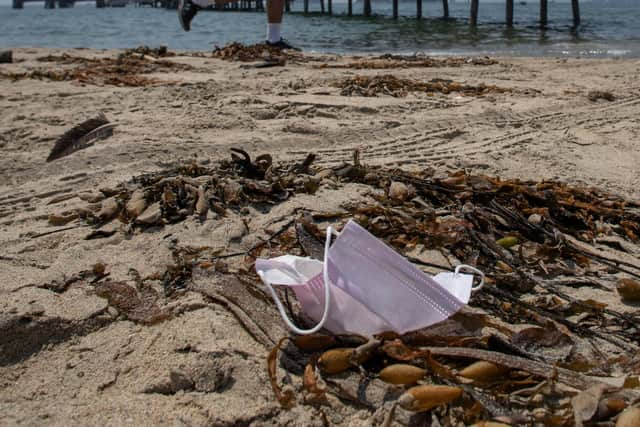Face mask plastic pollution went up by 91 times in first seven months of coronavirus pandemic warns University of Portsmouth
and live on Freeview channel 276
Now the researchers at the University of Portsmouth are urging the government to launch legislation to prevent PPE littering after two million items were collected across 11 countries.
They warn that face masks can act as a vector to spread Covid-19 and cause infrastructure problems such as blocking sewers.


Advertisement
Hide AdAdvertisement
Hide AdAlso, face masks can pose a threat to animals as they can choke on them or suffer problems if the masks are eaten. They can also damage plant life.
And in the long-term, the researchers warn that dropped face masks can help transmit pollutants as well as becoming micro plastics that enter the food chain.
Lead researcher Dr Keiron Roberts said: ‘There is a clear need to ensure that requiring the use of these items is accompanied with education campaigns to limit their release into the environment.’
Professor Steve Fletcher added: ‘Despite millions of people being told to use face masks, little guidance was given on how to dispose of them or recycle them safely. Without better disposal practices, an environmental disaster is looming.


Advertisement
Hide AdAdvertisement
Hide Ad‘The majority of masks are manufactured from long-lasting plastic materials, and if discarded can persist in the environment for decades to hundreds of years. This means they can have a number of impacts on the environment and people.’
Last year The Final Straw Foundation, which organises beach cleans and works with organisations to reduce the amount of plastic they use, warned that they were horrified by the numbers of disposable masks that were washing up on beaches on Hayling Island and in Southsea. They also said the numbers of masks seen on the ground in shopping areas was a large cause for concern.
